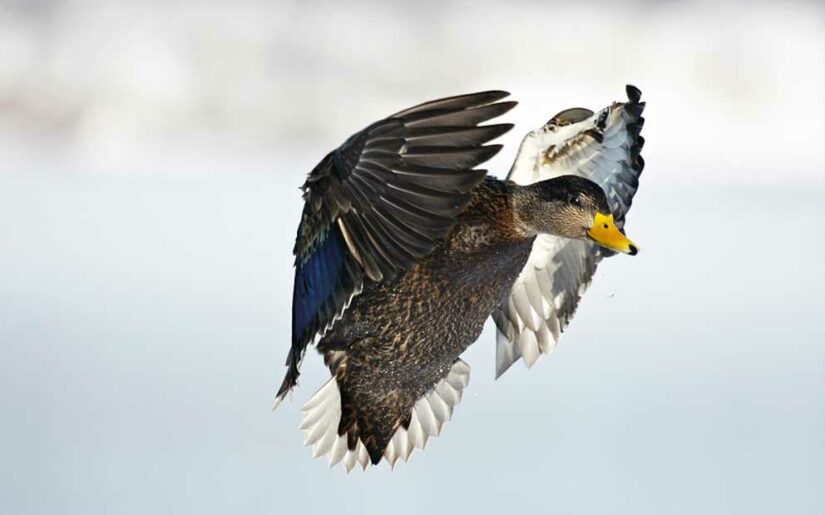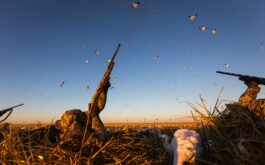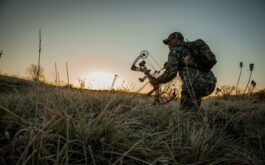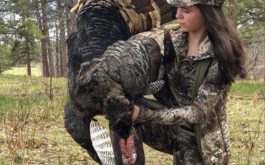There are few things as wonderful as hunting ducks in general… especially black ducks. These iconic, yet elusive, ducks are one of those ducks that you’ll want to add to your collection, and a visit to the northeast should be in your cards. We’re sharing a guide to hunting black ducks. Check it out, and hunt safely!
What to know about black ducks
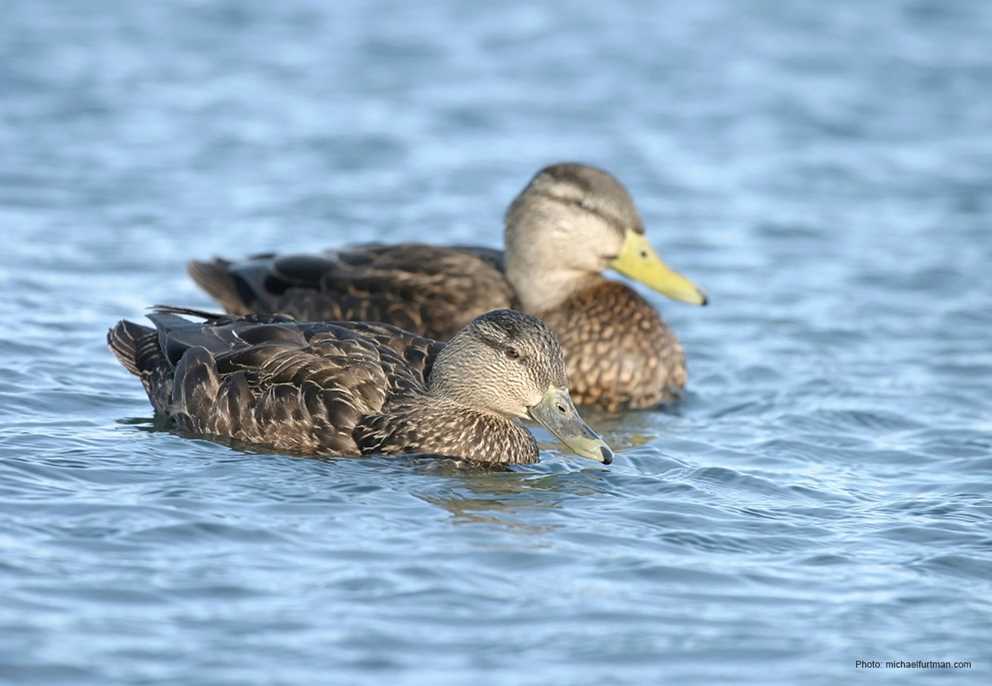
The iconic American black duck is a dabbling duck, meaning they feed by ducking underwater. These shy ducks have been a fixture in American life for many years. In fact, the first known fossil of the black duck is over 11,000 years old. These hide-in-plain-sight ducks can often be confused with mallards but do have their own defining characteristics.
Distinguishing between male and female black ducks can also be a challenge. Black ducks as a whole are known for their dark brown (not black) bodies and pale brown heads. One defining characteristic between genders comes in bill color. Males have yellow bills, while females have olive bills. Black ducks also have a unique blue underwing that you’ll be able to see in flight.
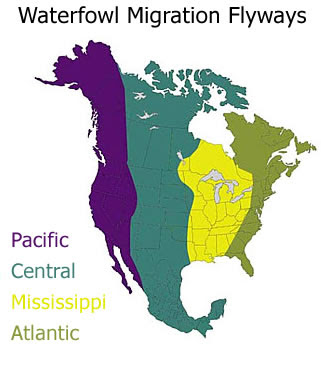
Where to hunt black ducks
If you’re looking for where to hunt black ducks, the northeast United States will likely be your best bet. Typically, you’ll be able to find them along both the Mississippi and Atlantic flyways, and they’re partial to coastal wetlands. If you want to get specific, there’s a high concentration of black ducks during the winter in between North Carolina and Long Island — so you have options! When they’re breeding, you can find them in wetlands like ponds, river islands, boreal bogs and salt marshes.
Common habits of black ducks
As dabbling ducks, black ducks don’t go deep into the water — but build their nests in the dirt, surrounded by vegetation. They eat insects and plants, but will also feed on crustaceans, small fish and mollusks. Black ducks often socialize and mix with mallards, and if you don’t look closely, you might confuse them!
How to hunt black ducks
As dabbling ducks, black ducks don’t go deep into the water — but build their nests in the dirt, surrounded by vegetation. They eat insects and plants, but will also feed on crustaceans, small fish and mollusks. Black ducks often socialize and mix with mallards, and if you don’t look closely, you might confuse them!
—
Are you ready to start hunting black ducks? Check out our top 10 duck hunting gear must haves and stay up-to-date on all local laws and regulations to make sure to hunt legally and safely. Hunting safely starts with our narrated, animated and engaging hunting safety courses. Register here.
